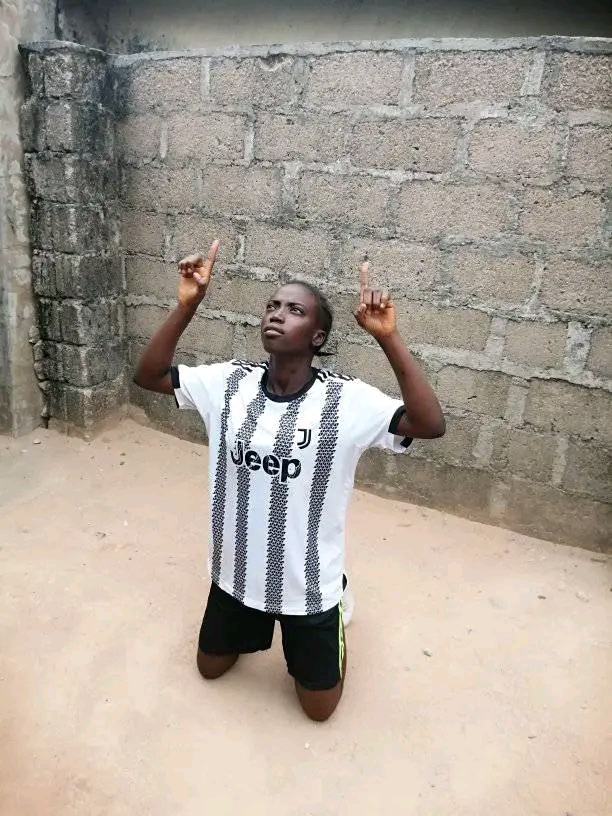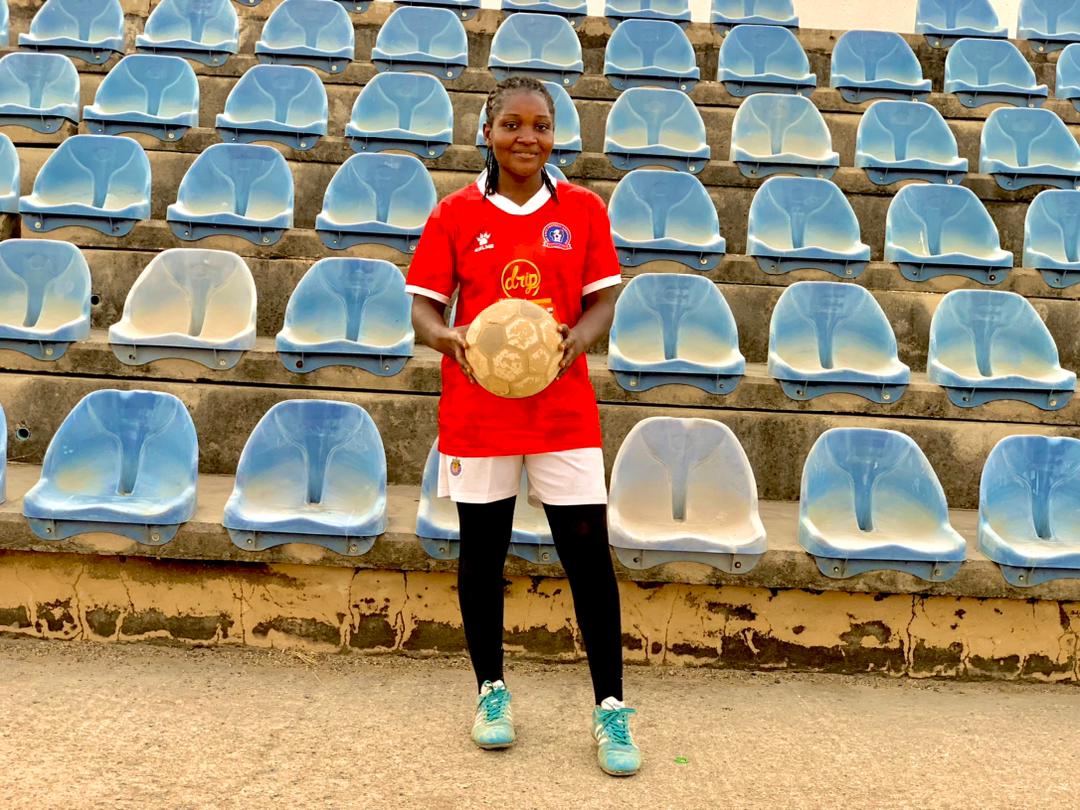That Tuesday morning in February 2024, Peace Aboshi got up from bed before dawn. As always, she launched into her early-morning routine of house-sweeping and dishwashing before starting her training regimen.
As the clock struck 6 in the capital city of Jalingo, Taraba State, Aboshi set out in a brilliant green-and-white gear—the official jersey of the national team—and a pair of pristine football boots, all of which she had purchased from a local boutique a few months ago
Although she often practiced in the evening, something about that Tuesday morning seemed to spark her groove, pumping her with renewed energy.
Aboshi’s eyes lit up with excitement as she stepped out of her home and began the familiar jog to the main street leading to the Jolly Nyame Stadium.
A team of players was assembled at the pitch, and brimming with adrenaline, she jumped right into action, giving the leather ball a sound kick.
Several miles away, Janet John dashed from her classroom to the hostel in short, clumsy steps. Her midday lecture had dragged on until 4:30 p.m., leaving her behind schedule for her evening practice at the Jolly Nyame Stadium.
After a hurried lunch, Janet made for the pitch, where she often trained till dusk. More often than not, she trained with the boys to build her endurance.
The spark of passion
Unlike many girls her age who grew up in Wukari, in southern Taraba, Aboshi was drawn to boyish pursuits. She developed an interest in football at age 5.
“I used to play local hockey and ride bicycles. Among all, football has been my best friend,” she recounted.
While in primary school, she joined the neighborhood boys for their morning and evening games. Her interest deepened in secondary school, where she became known for her exceptional skills as a footballer.
As opposed to Aboshi, Jane John grew up in the Nigerian state of Adamawa, where her mother instilled a love for athletics in her, often buying plastic balls for her two children.
“From playing inside our home with my younger brother, I moved onto the streets to play amongst boys,” Janet said. This street-soccer experience would hone her skills in the game.
Battling stereotypes
In northern Nigeria, societal norms often confine women to domestic roles, so that football and other such sports are perceived as unsuitable professions for women.
“I was told several times that there’s no future for me in football. People will often say that I should go and find a husband,” Aboshi narrated.
Janet, too, faced similar rebukes, as she aspired to become a player. “Some people will usually say that domestic chores at home should be the only thing I can fit into,” she expressed.
Despite the negativity from their local community, the two female players received blessings from their parents.
“They are my biggest cheerleaders,” Aboshi told Prime Progress. “They are understanding, and I have never encountered any problem from them regarding my love for football.”
Encouragement from her mother, Jane said, was instrumental to her career. “She earlier saw the passion in me and helped me nurture it.”

Finding fulfilment
Both Aboshi and Janet have defied gender stereotypes to unlock the fulfilment inherent in pursuing their passions.
At the College of Education in Zing, Aboshi led her school team to win the Provost’s Cup in 2020.
“I play as a striker, and with that, I have received gifts and words of encouragement to keep trying my best. I have also gotten the opportunity to play for a club in Imo State, although it was for a few months,” she stated.
Also, Janet has thrived playing alongside boys, which keeps her sharpening her skills and developing the mental strength needed to excel in the sport.
“Even though it’s tough playing with boys, joining them has helped me to build a high self-esteem,” Janet admitted.
Aboshi and Janetare only two of a growing number of girls thriving in a sports traditionally designed for men. From a hijab-wearing footballer aiming to match Nouhaila Benzina’s steps to a rising basketball player pushing her way to Olympic glory, Prime Progress has documented the inspiring stories of these women, highlighting their potential for greater participation and inclusivity.
Hope for the future
Aboshi hopes to inspire a generation of young girls in Taraba to chase their dreams, regardless of societal limitations.
“I’m hoping to set up a football academy in the future to empower young females from remote communities in Taraba. I want them to know that they can achieve anything they set their minds to,” she said.
Janet, meanwhile, is on her way to earning a law degree, even as she envisions taking her talent to the global stage.
“After my law studies, I would love to see myself playing for female clubs across Europe,” she noted.
As a fan of Chelsea Football Club, Aboshi hopes to play for the club’s female team in the future.
Recently, Aboshi and Janet were selected to train with Taraba Queens FC, from where they hope they make it to the Nigerian women’s football league. For them, this is but one significant progress for women’s football in Taraba State.
On a morning in February 2024, Peace Aboshi, an avid footballer, started her day with household chores before heading to her training session in Jalingo, Taraba State, dressed in her national team gear. Filled with enthusiasm, she joined a group of players at Jolly Nyame Stadium. Concurrently, Janet John, another dedicated player, hurried to her training, juggling her academic schedule with her football practice to build endurance.
Aboshi’s passion for football began at a young age, participating with boys in her neighborhood and excelling in school. Similarly, Janet developed her skills playing street soccer with her brother, inspired by their mother's support. Both faced societal stereotypes that discouraged women from pursuing sports but received unwavering support from their families, which fueled their determination.
Despite challenges, Aboshi led her college team to victory in the Provost's Cup, gaining recognition and opportunities to play at higher levels. Janet improved her self-esteem and skills by training with boys. Both athletes are examples of women breaking barriers in sports. Aboshi aspires to establish a football academy to empower young girls, while Janet aims to play for European clubs post her law studies.
Recently, both players were selected to train with Taraba Queens FC, looking forward to progressing to the Nigerian women's football league, marking significant strides for women’s football in the region.






